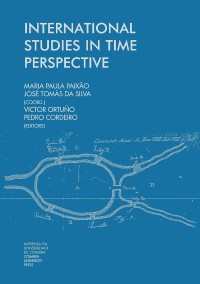Please use this identifier to cite or link to this item:
https://hdl.handle.net/10316.2/38605| DC Field | Value | Language |
|---|---|---|
| dc.contributor.author | Vásquez, Alejandro | |
| dc.contributor.author | Cruz, Orlanda | |
| dc.date.accessioned | 2016-02-05T12:02:06Z | |
| dc.date.accessioned | 2020-09-09T00:36:47Z | - |
| dc.date.available | 2016-02-05T12:02:06Z | |
| dc.date.available | 2020-09-09T00:36:47Z | - |
| dc.date.issued | 2013 | - |
| dc.identifier.isbn | 978-989-26-0668-2 | |
| dc.identifier.isbn | 978-989-26-0775-7 (PDF) | |
| dc.identifier.uri | https://hdl.handle.net/10316.2/38605 | - |
| dc.description.abstract | In this paper we explore the role of parental time orientation in the development of episodic foresight (EF), defi ned as the ability to project the self to the future. It is known that some personality traits of parents are transmitted to children and also that linguistic and stimulation background could be related to cognitive outcomes in the child. Traditionally, intergenerational transmission of cognitive skills has shown stronger effects than non-cognitive skills. Despite this, little is known about how this process works in the case of temporal cognition, and specifi cally, how parents’ temporal orientation can be related to the emergence of EF in early childhood. Across two studies, we experimentally assessed 3- and 4- years-old children on measures of EF and their mothers´ time orientation. In study 1, we used the Spanish version of the Considerations of Future Consequences Scale (CFC) and in Study 2, the Portuguese version of the Zimbardo Time Perspective Inventory (ZTPI). Results showed signifi cant, medium-range and negative fi rst order correlations (controlling for age in months) between present orientation scales and the score of EF across the 2 studies. In Study 1, higher levels of Immediate CFC correlate negatively to EF as in Study 2 Present Fatalism and Present Hedonism does. These results suggest that parental present orientation is associated to inter-individual differences on EF between preschoolers, but not –counter intuitivelywith future orientation scales. | eng |
| dc.language.iso | eng | - |
| dc.publisher | Imprensa da Universidade de Coimbra | por |
| dc.relation.ispartof | http://hdl.handle.net/10316.2/38604 | por |
| dc.rights | open access | - |
| dc.subject | episodic foresight | eng |
| dc.subject | time perspective | eng |
| dc.subject | consideration of future consequences | eng |
| dc.subject | intergenerational transmission | eng |
| dc.title | “Start thinking what are you going to be when adult!”: the relationship between parental time orientation and the emergence of episodic foresight in preschool aged children | por |
| dc.type | bookPart | por |
| uc.publication.collection | Investigação | por |
| uc.publication.firstPage | 13 | - |
| uc.publication.lastPage | 18 | - |
| uc.publication.location | Coimbra | por |
| dc.identifier.doi | 10.14195/978-989-26-0775-7_1 | - |
| uc.publication.section | Part 1 - Time perspective and human development: adaptative functioning and risk behaviors across the life-span | por |
| uc.publication.digCollection | PB | por |
| uc.publication.orderno | 1 | - |
| uc.publication.area | Ciências Sociais | por |
| uc.publication.bookTitle | International studies in time perspective | - |
| uc.publication.manifest | https://dl.uc.pt/json/iiif/10316.2/38605/207016/manifest?manifest=/json/iiif/10316.2/38605/207016/manifest | - |
| uc.publication.thumbnail | https://dl.uc.pt/retrieve/11110492 | - |
| uc.publication.parentItemId | 54587 | - |
| uc.itemId | 69414 | - |
| item.grantfulltext | open | - |
| item.fulltext | With Fulltext | - |
| Appears in Collections: | International studies in time perspective | |
Files in This Item:
| File | Description | Size | Format | |
|---|---|---|---|---|
| start_thinking_waht_are_you_going_to_be_when_adult.pdf | 3.86 MB | Adobe PDF |  |
Items in DSpace are protected by copyright, with all rights reserved, unless otherwise indicated.
